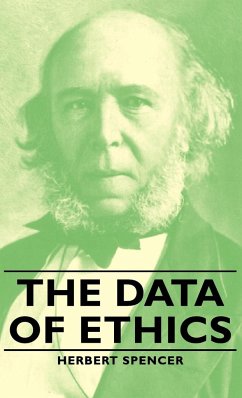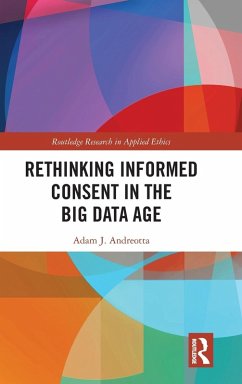
The Data of Ethics
Versandkostenfrei!
Versandfertig in 1-2 Wochen
30,99 €
inkl. MwSt.

PAYBACK Punkte
15 °P sammeln!
This volume contains Herbert Spencer's 1879 treatise, "The Data of Ethics". It is a fascinating exploration of the concepts of 'good' and 'bad' conduct, that looks at the problem from sociological, psychological, and biological viewpoints. This text will appeal to those with an interest in philosophy and ethics, and it constitutes a must-read for fans of Spencer's seminal work. The chapters of this book include: "Conduct in General", "The Evolution of Conduct", "Good and Bad Conduct", "Ways of Judging Conduct", "The Physical View", "The Biological View", "The Psychological View", "The Sociolog...
This volume contains Herbert Spencer's 1879 treatise, "The Data of Ethics". It is a fascinating exploration of the concepts of 'good' and 'bad' conduct, that looks at the problem from sociological, psychological, and biological viewpoints. This text will appeal to those with an interest in philosophy and ethics, and it constitutes a must-read for fans of Spencer's seminal work. The chapters of this book include: "Conduct in General", "The Evolution of Conduct", "Good and Bad Conduct", "Ways of Judging Conduct", "The Physical View", "The Biological View", "The Psychological View", "The Sociological View", "Criticisms and Explanations", etcetera. Herbert Spencer (1820 - 1903) was an influential English philosopher, scientist, anthropologist, and sociologist during the Victorian era. Many vintage texts such as this are increasingly scarce and expensive, and it is with this in mind that we are republishing this book now, in an affordable, high-quality, modern edition. It comes complete with a specially commissioned biography of the author.












